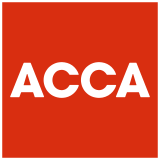This article has been written for those who are non-UK resident and owns residential property or properties in the UK. The article will mainly focus on how much income tax you would be paying if you start renting out the property. We will try to cover some other areas of UK taxes, but they are not the main focus of this article.
- You should read this blog if you:
- Own one or more rental or buy-to-let properties in the UK
- The properties are in your personal name
- You visit the UK for a few weeks or a month in a year, and you are not UK resident
- You live in another country.
- You are resident in another country for tax purposes.
Purchase of a residential property
You can find more information about Stamp Duty Tax Rates on this link
After the Purchase of a residential property
Simply purchasing a property in the UK doesn’t mean you will start paying taxes. If you are not letting the property and it is vacant for any reason, you will not be liable for income tax. However, you might be responsible council tax depending on the council. The council tax is payable by the person who lives on the property. However, if the property is vacant for any reason, the owner of the property would be liable to pay council tax.
Started renting out a residential property
The rest of the article will now focus on what steps you need to take when renting out a residential property in the UK as a non-resident landlord.
- Who is a non-resident in the UK for tax purposes?
The residency status of an individual is a complex area of taxation. However, for your convenience, I will try to keep it simple for your understanding and will not go into detail on this to avoid detracting from our main topic.
Any person living outside the UK and visiting the UK only for a few weeks or a month in a year will likely be a non-resident in the UK for tax purposes. If this is not the case, you need to contact us, and we will try to help to establish your tax residency status.
If you are a non-resident in the UK and renting out a residential property, you will be called a non-resident landlord for tax purposes.
- Non-Resident Landlord Scheme (NRLS)
Non-resident landlords are subject to the provision of non-resident landlord schemes. Under the NRL scheme, the tenant or letting agent will deduct 20% of income tax from your rent. The letting agent will deduct the tax and pay HMRC on your behalf, usually quarterly.
You can receive your rental income as gross without tax deduction if you obtain permission from HMRC. You need to send an application to HMRC that you would like to receive gross rent from your estate agent. If the application is approved, your estate agent will start paying your rent as gross without tax deduction. You will then be responsible for paying your taxes when you file your annual self-assessment tax return.
The grant of permission by HMRC doesn’t mean that the non-resident landlord would not be paying tax. This simply means that non-resident rental property owners will directly pay HMRC (UK government authorities) taxes when they file their annual self-assessment tax return.
If you need help with your non-resident landlord registration application, please contact us on 020 8191 9583 or drop us an email at info@zahtaxaccountants.com.
Warning!!!
Based on our experience, many non-residents have misunderstood that as the estate agent is deducting tax and paying to HMRC, they do not have any further responsibility or compliance for UK tax purposes. This is incorrect. You are still required to submit an annual self-assessment tax return with HMRC. You will need to engage an accountant to file your annual self-assessment tax return every year.
More details can be found here about Non Resident Landlord Scheme
- How much tax is payable on UK rental profit if you are a non-resident?
It depends how much your UK rental income or any other UK income. If your total income (rental or others) is less than approx. £50,270, you will be paying 20% tax on your rental profits (Gross rent less rental expenses). If your total income (rental or others) is more than £50,270, you will pay 40% tax on any UK rental income falling above this band. I have summarised the UK income tax rates as below:
| Income Band | Taxable Income | Tax Rate Applicable |
| Personal Allowance (if eligible otherwise 20% tax rate) | Up to £12,570 | 0% |
| Basic rate | £12,571 to £50,270 | 20% |
| Higher rate | £50,271 to £125,140 | 40% |
| Additional rate | Over £125,140 | 45% |
- How are UK taxable rental profits calculated
You will pay tax on your UK rental profits. These will be calculated as below:
Gross UK rent XXX
Less: Expenses incurred related to UK rental property (XXX)
Taxale Rental profits/(loss) XXX (XXX)
If the expenses incurred related to the property are more than the gross rent received, you will incur a loss, and there are no taxes payable in the UK.
If your UK income is more than your rental expenses, you will pay tax on the profits you made. The above tax rates will be applicable to the rental profits.
Now the question is, what expenses can be incurred related to UK rental property?
In general, any expenses which have been incurred wholly and exclusively for the purpose of renting a property can be claimed against the rental income.
Below, I have listed the most commonly incurred expenses you may incur on a resident letting in the UK. There can be any other as long as the criteria of wholly and exclusively is met.
- Estate agent fees
- Repairs and maintenance
- Service charges
- Ground rent
- Mortgage interest (not capital repayment)
- Replacement of items such as furniture or white goods
- Insurance
- Council tax, if paid by the landlord
- Legal, manamgent and accountancy fees.
Non-resident landlord self-assessment tax return
Being a non-resident landlord, you must submit your annual non-resident landlord self-assessment tax return for each tax year. As discussed above, whether or not your estate agent has deducted tax from your rental income, you are still required to submit your annual tax return.
The tax year in the UK starts from 6 April to the following 5 April. For example, if you have started renting your UK property from 1 August 2022, the first relevant tax year would be 6 April 2022 to 5 April 2023 (tax year 2022/23), you will be required to submit your tax return for this period and the deadline for filing the tax year for 2022/23 is 31 January 2024.
I have listed below a few tax years and their deadlines for your understanding:
| Tax Year | Relevant Period | Deadline to file Tax return |
| 2022/23 | 6 April 2022 to 5 April 2023 | 31 January 2024 |
| 2023/24 | 6 April 2023 to 5 April 2024 | 31 January 2025 |
| 2024/25 | 6 April 2024 to 5 April 2025 | 31 January 2026 |
Summary:
If you receive a rental income in the UK, you have the following three main responsibilities from the tax compliance point of view:
- Register with HMRC as a UK non-resident landlord
- Keep a record of your rental income and expenses
- File your annual self-assessment tax return
How Can Zahtax Accountant help you with your non resident landlord taxes?
At Zaxtax, we have a team of experts who are specialized in non resident landlord taxes. They will ensure that you are fully compliant with your UK tax obligations as a non-resident landlord in the UK. We can help with all your UK tax obligations, including the following:
- Registration with HMRC (UK government) as a non-resident landlord
- Calculation of your UK taxable rental income
- Advise on claiming all the legitimate expenses related to your rental property
- Advice on whether you can claim your UK personal allowances being a non-resident
- Deal with all routine correspondence from HMRC on your behalf related to your annual non resident landlord tax return
- Calculation of your tax liability (or refund) due on your rental property
- Advise on how to make the payment of your tax liability
- Submission of your annual self-assessment tax return with the Approved HMRC Authorised software.
Why Choose Zahtax Accountants?
You should choose Zahtax Accountants because we are:
- Chartered Certified Accountants and registered with the Association of Chartered Certified Accountants (ACCA).
- Expert team of non resident landlord tax accountants and advisors
- Reliable advice and customer service
- HMRC (Government) Authorised Agent
- Registered with Information Commissioner Office (ICO) for your data security
- Use of General Data Protection Regulation (GDPR) compliant software for the exchange of information and for filing your annual self-assessment tax returns
- Complete digital tax solution for the start to the filing of your annual non resident landlord tax return.
- A serious commitment to your privacy and data security.






